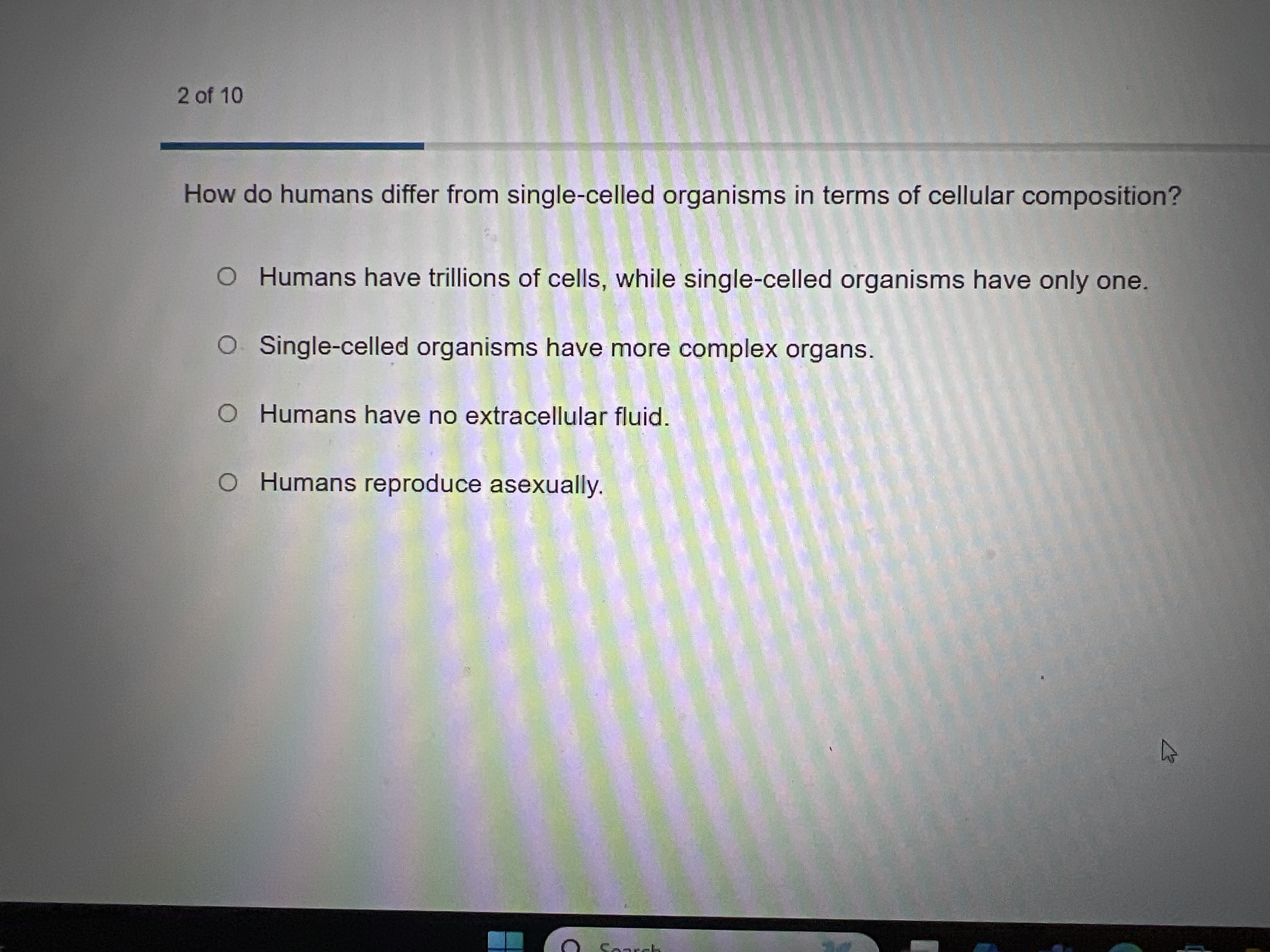How do humans differ from single-celled organisms in terms of cellular composition?

Understand the Problem
The question is asking about the differences in cellular composition between humans and single-celled organisms. It requests an explanation of how humans are distinct in terms of the number of cells and their organization.
Answer
Humans have trillions of cells, while single-celled organisms have only one.
Humans have trillions of cells, while single-celled organisms have only one.
Answer for screen readers
Humans have trillions of cells, while single-celled organisms have only one.
More Information
Humans are multicellular organisms, meaning they have various types of specialized cells working together, while single-celled organisms consist of a single cell.
Tips
A common mistake might be confusing cellular specialization in multicellular organisms with complexity in single-celled organisms.
Sources
- Multicellular vs Unicellular - National Geographic Society - education.nationalgeographic.org
AI-generated content may contain errors. Please verify critical information